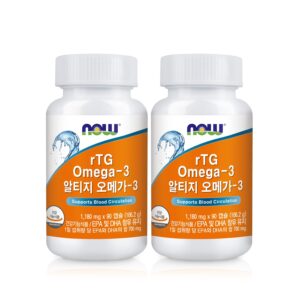Making Skin Immunity Rice: Enhance Your Skin’s Immunity! Alleviate Skin Troubles!
Welcome to our latest blog post where we delve into the healing powers of Skin Immunity Rice, a unique recipe crafted to bolster your skin’s natural defenses against conditions like atopic dermatitis and seborrheic dermatitis.
Using everyday ingredients like rice, turmeric, and Mai Men Dong, this dish is not only easy to prepare but also incorporates the anti-inflammatory and antioxidant benefits of turmeric along with the immune-boosting properties of Mai Men Dong.
Whether you’re struggling with skin issues or simply seeking ways to enhance your overall skin health through diet, this post will guide you through the causes of common skin conditions, effective treatments, and how to prepare this nutritious meal that can become a therapeutic staple in your culinary repertoire.
Making Skin Immunity Rice: Enhance Your Skin’s Immunity! Alleviate Skin Troubles!

Introduction
Today, I am excited to introduce a special dish designed specifically for those suffering from skin conditions such as atopic dermatitis and seborrheic dermatitis. This recipe focuses on enhancing skin immunity using ingredients that are easily accessible and can be prepared effortlessly at home, offering a practical solution for everyday wellness.
Causes and Common Symptoms of Skin Issues
Many individuals endure discomfort and irritation from skin issues, which are commonly traced back to two main causes. The first is related to pulmonary complications, and the second pertains to disturbances in heat circulation within the body.
These underlying issues are linked not only to respiratory diseases like rhinitis and asthma but also to various skin ailments including atopic dermatitis and allergic dermatitis. Such conditions manifest as inflammatory reactions in different parts of the body, with itching being one of the prevalent symptoms.
Fundamental Treatment of Inflammation
To address skin issues fundamentally, it’s crucial to manage the elevated skin temperatures that contribute to symptoms such as redness, rashes, and rosacea. Additionally, regulating body temperature to boost the immune system is vital.
When the body’s heat energy metabolism is activated, it naturally enhances the activity of immune cells, helping to restore health more effectively.
Skin Immunity Rice Recipe
Ingredients Preparation
Rice (your usual white or mixed grains)
Turmeric powder: Contains curcumin, known for its anti-inflammatory and antioxidant properties
Ophiopogon japonicus (Mai Men Dong): Beneficial for respiratory health and immune enhancement
Water (appropriate amount)
Cooking Method
Prepare the Rice: Wash the rice as usual and set it in the rice cooker.
Adding Turmeric Powder: Mix a pinch (about 1/2 teaspoon) of turmeric powder into the water used for cooking the rice. Turmeric is renowned for its strong antioxidant effects and its capacity to reduce inflammation, aiding in skin health.
Preparing Mai Men Dong: This herb, once roasted and dried, can be purchased ready to use. Soak about 1 teaspoon of Mai Men Dong in water for 30 minutes, then add it to the rice before cooking. This herb not only supports respiratory health but also aids in boosting immunity.
Cooking the Rice: Cook the rice in the rice cooker as usual. Stirring once more to ensure the turmeric and Mai Men Dong are evenly distributed.
Finishing and Serving: Once the rice is cooked, stir well to ensure the turmeric and Mai Men Dong are evenly distributed throughout. The rice will have a yellow color and might have a slight herbal scent.
Serving Suggestions
The completed skin immunity rice can be served alone or with other side dishes. Since the aroma of turmeric might be strong for some, adjust the quantity according to personal preference. Pairing it with other dishes that promote skin health can enrich the meal nutritionally.
Conclusion
Treating skin issues is not solely about external treatments; internal nourishment through diet plays a crucial role in healing. The skin immunity rice integrates easily into daily meals and utilizes the benefits of turmeric and Mai Men Dong to enhance skin health. Consistent care and proper dietary habits are essential for improving skin conditions, making this recipe not just a meal but a therapeutic tool in your overall skin care regimen.







